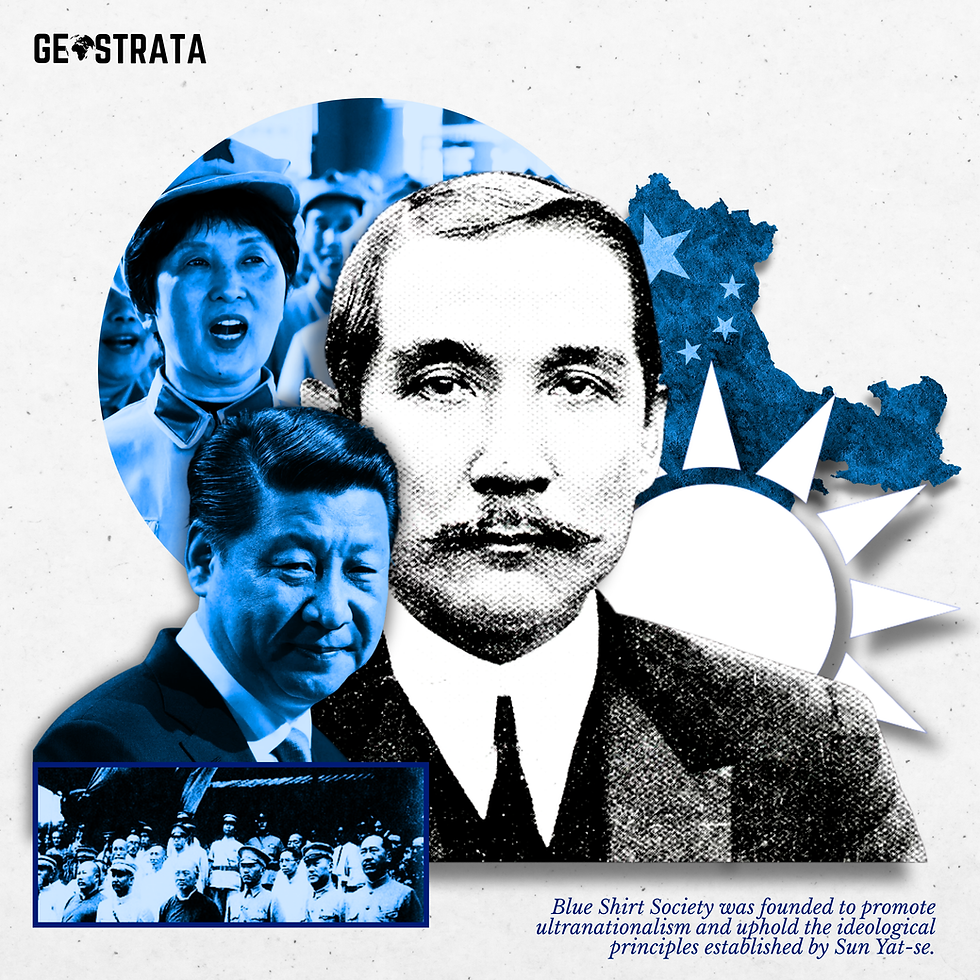Impact of Lankan Crisis on India
- THE GEOSTRATA

- May 13, 2022
- 4 min read
Updated: Oct 31, 2022
Image Credits: Reuters
Ceylon, better known as Sri Lanka is going through its worst economic crisis since its independence and now the ripples are being felt in India as well. As a result of mismanaged government finances, ill-timed tax cuts, and an aggravated the Covid-19 pandemic, the country’s economic meltdown led people to come out on the streets to protest. This situation led to Sri Lanka’s President Gotabaya Rajapaksa declaring an Emergency on April 1 2022 which was later revoked on 5 April 2022.
This financial breakdown did not occur in the last few months; the groundwork was laid in 2010. Soon after the end of the Sri Lankan civil war, the military became a major power in the country. This was also the period when the Sri Lankan government began incurring debts without regard for repayment. By 2019, it was 88% of the GDP, by 2021 it was 101% of GDP and by March 2022, it crossed 135% of its GDP with no silver line as to how it will be paid.
Image Credits: The New York Times
The fallout from the Easter Sunday bombing in 2019 brought the tourism industry, which is the country’s third-largest foreign exchange earner to a virtual halt. The last nail in the coffin was the COVID-19 pandemic which stagnated the economy. The decision of the Rajapaksa government to completely ban chemical fertilizers last year to become the first country to fully adopt organic farming backfired brutally. Huge piles of foreign debt, a series of lockdowns, soaring inflation, fuel shortages, a drop in foreign currency reserves, and currency devaluation have all hampered the country's economic growth.
India has strategic, social as well as economic interests with Sri Lanka and it is therefore obvious that the current situation in Sri Lanka is going to have an impact on India in more ways than one.
INCREASING CHINESE INFLUENCE -
With such an economic situation and the fact that the Sri Lankan government has requested $2.5 billion as emergency aid from China, there is a risk that China will gain influence in the island country. Because of Sri Lanka's strategic location, India must be cautious of any Chinese attempt to influence the country.
ECONOMIC ASPECTS -
Although India imports less than $1 billion in goods, there is a serious economic threat in terms of handling Indian trans-shipments. Sri Lanka is a vital trans-shipment hub, handling nearly half of our international cargo. A large number of Indian shipments are currently stranded in Sri Lankan ports due to a lack of labor, a lack of vehicles to transport our containers between ports, and the closure of port facilities.
India has been among Sri Lanka’s largest trade partners. India accounts for more than one-fifth of Sri Lanka’s total imports.
India was the biggest source of FDI for Sri Lanka in 2019 at $139 million, only After China and the UK. The main investments from India are in the areas of petroleum retail, tourism, and hotel, manufacturing, real estate, telecommunication, banking, and financial services.
REFUGEE CRISIS -
Whenever a political or social crisis occurs in Sri Lanka, refugees flee to India via the Palk Strait and the Gulf of Munnar. This is because the people belong to the same Tamil Community that has been connected for centuries, and another reason is that after the Sri Lankan Civil War, the faith of the ethnic Tamil community in the Sri Lankan government has been reduced. India may struggle to cope with such a large influx of refugees. We saw it in the 1990s, but this time it will be more severe. A large number of refugees have already begun to arrive, and India must develop a strong policy to deal with them.
RISE OF REBEL GROUPS IN SRI LANKA -
Despite Sri Lanka's claim that it had eliminated Tamil rebel groups by 2009, things are still boiling on the inside. Tamils do not yet have a proper representation in the government, and they are largely ignored in these times. This economic crisis may give new life to already depleted rebels looking for a cause to fuel the issue. There are several dissident groups among the ethnic Sinhalese population as well, and we cannot rule out the possibility of them picking up weapons in this time of crisis.
HUMANITARIAN CRISIS -
India is Sri Lanka's only immediate neighbor, and as we can see, there is a greater threat of a large-scale humanitarian crisis looming over the country. There is no food, no medicine, no law and order, and in the event of a major crisis such as civil war or any other humanitarian crisis, India will bear the entire burden of assisting. India will be a medium for transferring international aid, putting additional strain on our economy. This will have both positive and negative consequences.
India should view the ongoing Sri Lankan crisis as a cautionary tale and learn from the mistake of easy access to cheap credit and short-sighted policymaking. While acknowledging China's continued presence in Sri Lanka in the quest for a "string of pearls," India must seize the opportunity to re-establish its traditional influence in Sri Lanka. After all, continued unrest on the island will have ramifications in India.
———————————————
BY DIPIKA SINGH
TEAM GEOSTRATA
dipika03singh@gmail.com
.png)









Comments